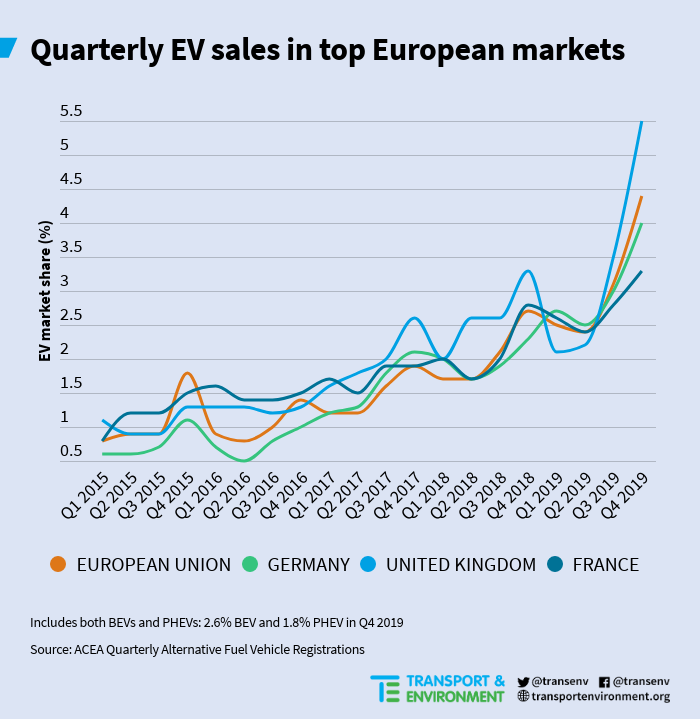
Interested in this kind of news?
Receive them directly in your inbox. Delivered once a week.
T&E said the figures show that consumer demand is there and pave the way for 2020 to be the year of the electric car. Clean vehicles and emobility director, Julia Poliscanova, said: ‘Even before the EU CO2 standards for new cars kicked in January, the electric car sales in the last quarter of 2019 reached an all time high. This shows that the demand is there and is growing, and the reason for low sales until now has been a poor supply of models by car makers.
‘The CO2 standards will require the car industry to sell around a 5% share of electric cars in 2020, which is within reach and will kick-start the pathway to zero emissions mobility required by the European Green Deal.’
Diesel sales continued to fall and accounted for 29% of sales between October and December 2019. Between 2005 and 2015, diesel dominated the market with over half of new car sales in Europe.
In 2019, T&E analysed how many electric cars each carmaker will have to sell in 2020-21 to achieve the targets. Overall, the analysis forecasts the EU-wide sales of EVs will go from 2% in 2018 (2.9% in June 2019) to 5% in 2020 (3-7% range) and 10% in 2021 (7-12% range). Around half of sales are expected to be zero-emission vehicles and half plug-in hybrids. The jump in EV sales in 2021 results from the EU CO2 target applying to all cars sold in 2021 (not 95%) and because many carmakers will need to make use of most of their super-credit allowances in 2020 to meet the target.


